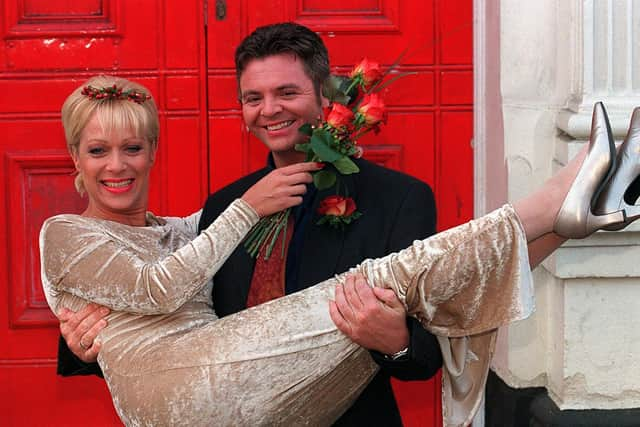Why the UK's marriage laws are hopelessly out of date - Siddique Patel
This is done according to the Marriage Act 1949 and for same sex couples in the UK, the Marriage (Same Sex Couples) Act 2013. The effect of this is that it gives the married couple rights which a non-married couple generally do not have.
Upon divorce, both parties are entitled to financial provision and they can make applications to the court for remedies including maintenance for themselves and their children, periodical payments, sale of property, pension sharing orders, etc.
Advertisement
Hide AdAdvertisement
Hide AdHowever, the Marriage Act 1949 recognises only three faith groups as having valid, registered civil marriages in the eyes of the law, Anglicans (Church of England & Wales), Jews and Quakers.


An Islamic Nikah ceremony performed in England and Wales will not be classed as a valid marriage (‘qualifying ceremony’) which means that, upon divorce, the parties will not have the protection of the Matrimonial Causes Act 1973 (MCA 1973).
It is against this background that the rules which surround the dissolution of the Islamic Nikah, the rules of Talaq, apply. In practice, any one of the rules of Talaq will bring to an end the Islamic Nikah but will not entitle the parties to the protection offered under the MCA 1973.
Of course, if there is both an Islamic Nikah and a separate civil registry marriage conducted in the UK, the couple will have to undergo both sets of procedures to completely dissolve their marriage from both an Islamic and civil standpoint. In that particular scenario, the parties will have recourse to the MCA 1973.
Advertisement
Hide AdAdvertisement
Hide AdDespite the first instance decision in the High Court in the case of Akhter v Khan which has since been overturned at the Court of Appeal, there is a pressing need to update the Marriage Act 1949 to reflect the ever-growing practice of Muslims choosing to have an Islamic Nikah only, without the corresponding civil ceremony.
There are various efforts being made to educate the public and lobby Government and policy makers for a change in the law, one of which is the Register Our Marriage Campaign (ROM), which is campaigning and lobbying the Government so that the Marriage Act 1949 is updated.
Finally, the Law Commission is also undertaking a major review of marriage law.
As a family lawyer specialising in Islamic family law and religious divorce, and having a sizeable chunk of my practice in Yorkshire, I have seen nothing but an increase in enquiries made by couples who are separating in respect of both the civil and religious elements of their divorce.
Advertisement
Hide AdAdvertisement
Hide AdPrior to the double whammy of Brexit and the global pandemic, there was some momentum in the conversation around changing the law in this area to reflect the diversity of belief and thought in our diverse country.
Sadly, due to unavoidable circumstances, this momentum has now slowed and at this point, we still find ourselves in a position in England and Wales where the marriage and divorce laws are hopelessly out of date.